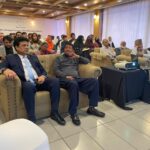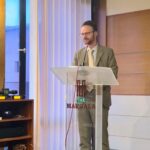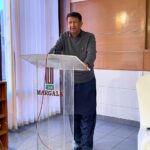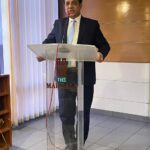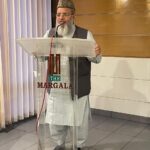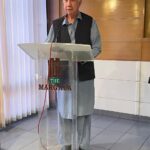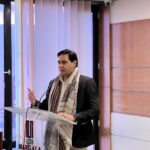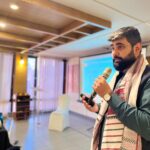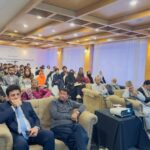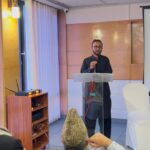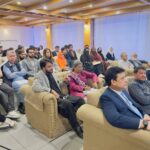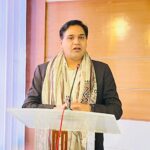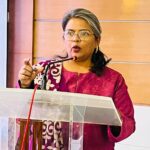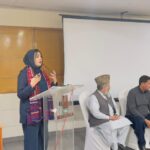PIPS launches reports on youth pluralism, policymakers stress dialogue to curb extremism
The Pak Institute for Peace Studies (PIPS) launched its comprehensive national report, “Building Bridges: Fostering Tolerance and Inclusivity among Youth,” along with four provincial editions, on November 7 in Islamabad. Drawing on empirical insights from over 300 university and madrassa students, as well as peace activists from across Pakistan, the report explores youth perspectives on inclusivity and tolerance, the factors influencing their worldviews, and emerging trends of radicalization with implications for interfaith harmony and social diversity.
The reports are available for download on the PIPS website: www.pakpips.com
The launch ceremony saw high-profile participation from diplomats, senior lawmakers, educationists, and religious scholars from across the country, highlighting the urgent need for a unified strategy to address rising intolerance.
Muhammad Murtaza, PIPS Project Manager, presented the report’s key findings, which analyzed the thought patterns of youth nationwide. The data was compiled from workshops, qualitative interviews, and extensive surveys conducted with students from universities, colleges, and religious seminaries across all four provinces and Islamabad between November 2024 and June 2025.
Muhammad Amir Rana, President PIPS, emphasized the significance of the research, stating that the study provides rich data that will be shared with researchers and policymakers to inform evidence-based interventions.
Addressing the gathering, Senator Khalil Tahir Sandhu (PML-N), former provincial minister for human rights, stressed the need to “continue and strengthen the process of dialogue” to decrease rising extremism, noting a significant lack of such engagement in society. “People in our society have lost the sense of acceptance,” Senator Sandhu remarked, calling for the promotion of pluralism by embracing individuals from diverse ethnic, religious, and linguistic backgrounds.
Dr. Raghib Hussain Naeemi, Chairman of the Council of Islamic Ideology (CII), who chaired the session, hoped the workshop participants would implement social action plans in their communities to actively promote peace and tolerance, urging a collective understanding of the radical shift among societal segments.
Several experts offered critical perspectives on the roots of extremism and the role of youth. Dr. Ishtiaq Ahmad, former member of the Planning Commission of Pakistan, highlighted the national issue of lack of opportunity for political participation for youth. He acknowledged that the PIPS research effectively captured the “positive potential of the youth,” demonstrating their capacity to drive significant change.
Ex-Senator Afrasiab Khattak, political analyst and human rights activist, argued that extremism in Pakistan is not “homegrown,” but rather a result of social and cultural engineering. He called for optimism and the need to “tolerate the difference of opinion,” recognizing that disagreement often generates new ideas.
Dr. Khalid Masood, Judge of the Shariat Appellate Bench of the Supreme Court, stressed that the society itself must take the initiative to end growing intolerance and extremism, rather than relying solely on the state.
Dr. Afshan Huma, educationist and author, presented a critical review, suggesting the need for more qualitative analysis to maximize the report’s use in policymaking. She advocated for promoting peaceful co-existence over mere tolerance, arguing that tolerance often permits prejudices and biases to remain.
Laurens Bistervels, First Secretary Political at the Netherlands Embassy in Islamabad, spoke as the chief guest, underscoring the vital importance of promoting lessons in tolerance and pluralism. He advocated for supporting youth-led initiatives and policy measures that protect minority rights, affirming that the Embassy of the Netherlands will continue its support.
Ms. Esham Farooq concluded the event by emphasizing that societal growth is achieved through a continuous cycle of learning, un-learning, and relearning from collective experiences.


